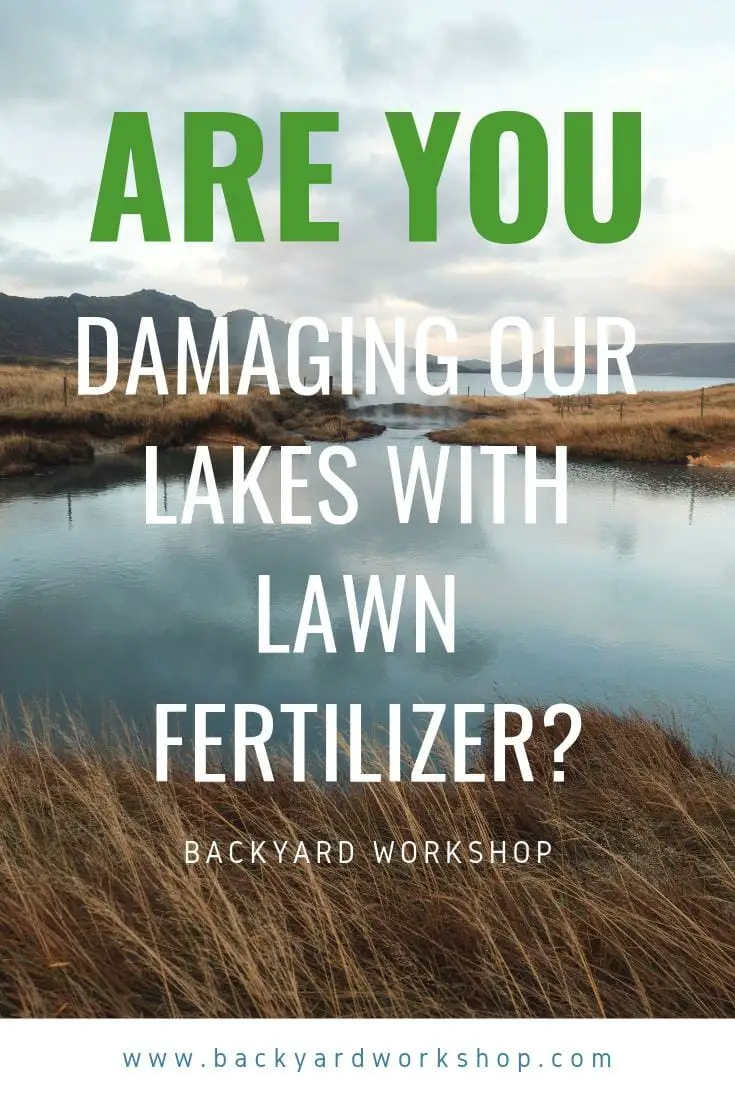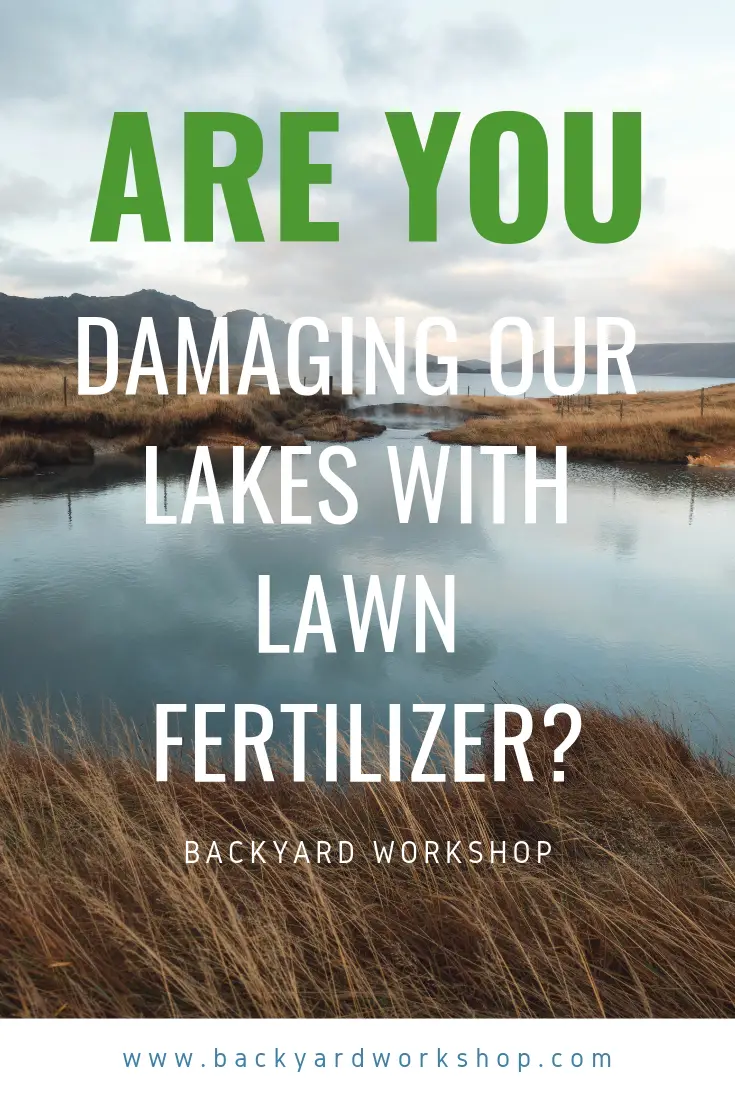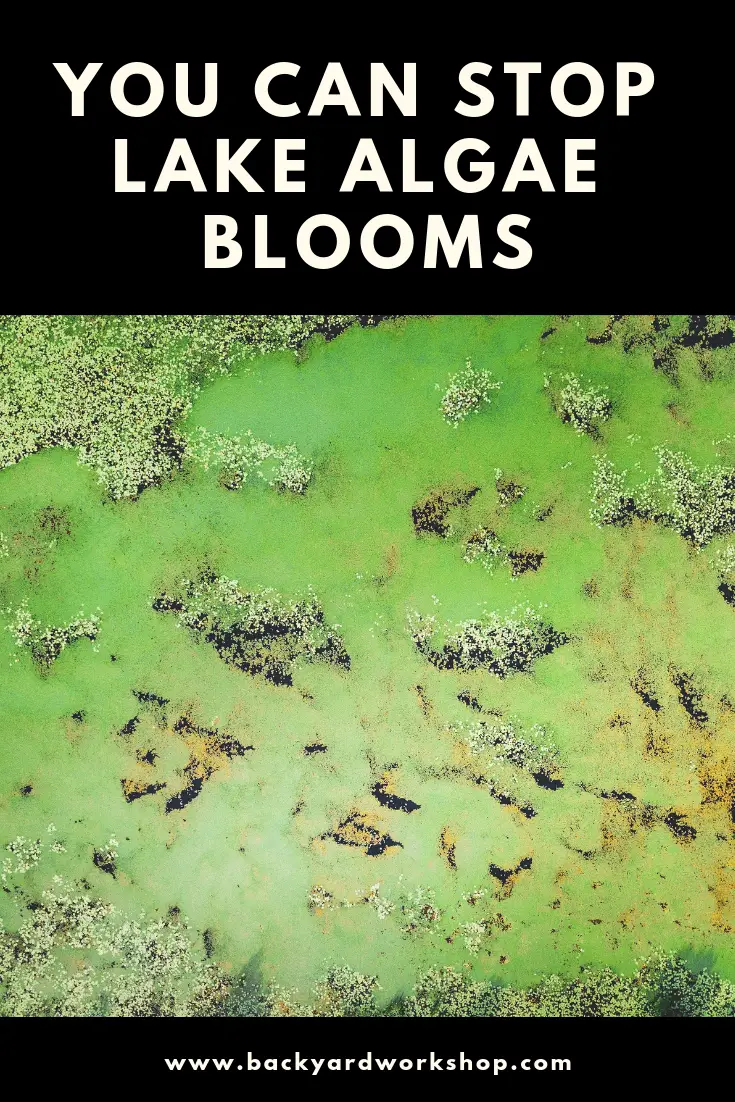Are You Ruining The Lakes With Lawn Fertilizer?

Lawn fertilizer may be useful to make your lawn green and healthy, but what impact does it have on the fish and fowl that live in the lakes near us? Does fertilizing my lawn affect the health of lakes and streams near me? Is there a way to have a healthy green lawn without affecting the lake health?
What Does Fertilizer Do To A Lake?
Fertilizers often affect the ecosystem in the lake negatively. Phosphorus runoff is the biggest issue. This chemical, directly and indirectly, harms fish.
• The smell of fertilizer overpowers the other scents in the water. Fish can no longer use their sense of smell as a homing device because of the masking effect of grass fertilizer.
• It harms organisms that serve as food for fish.
• It can make it more difficult for fish to reproduce. Studies have shown that chemicals negatively impact salmon reproduction and their ability to avoid predators.
• Phosphorus in fertilizers stimulate growth; it’s generally used to stimulate growth in new lawns. Phosphorus in water has the same effect; it encourages algae growth. Algae releases toxins that are harmful to fish if released in large doses – which usually happens during algae blooms.
• Algae require oxygen; algae explosions may deprive the water of oxygen fish need for survival.

What Can I Do To Minimize Damage?
You can take steps to minimize your impact on waterways.
- Clean the area around the lawn after you’ve mowed or fertilized. The fertilizer and grass clippings on the driveway, sidewalk, and on the road washes into the lake via the stormwater.
- If your property is on the lake, create a buffer zone between the water and the lawn. It’s a 6-8-foot area where you don’t fertilize or mow the lawn. Not only will this help with chemical pollutants, but it’ll also keep geese at bay too.
Without a buffer zone, geese use the yard as their feeding ground, landing pad, and litter box. By allowing habitat plants to grow in the buffer zone, geese won’t defile the lake AND provide a sponge for lawn fertilizer nutrients. - Only fertilize when the lawn needs it. The grass absorbs the nutrients, and there’s no excess to pollute the lake.
- Fertilizer at the right time. Too much nitrogen too early in the growing season leads to a shallow root system that cannot hold the nutrients; nutrients are easily washed away.
- Use the right N-P-K ratio of fertilizer. An established lawn seldom needs phosphorus except in Fall or if the soil lacks the nutrient. Apply fertilizers with little or no phosphorus content. New grass seedlings need phosphorus; avoid overfertilizing to prevent pollution.
- Test the soil to see what it lacks before fertilizing. The earth may have enough nutrients and lawn fertilizer may not be necessary.
Does All Lawn Fertilizer Hurt Waterways?
TOO MUCH FERTILIZER WILL HURT A LAKE. Just wanted to state that up front in case you happen to skim. 🙂
Organic fertilizers are slow-releasing fertilizers made from natural ingredients. Grass and plants absorb and utilize nutrients better when released slowly.
It’s easier to overfertilize with a synthetic fertilizer than a slow-releasing fertilizer.
The N-P-K ratios on fertilizer bags vary. It’s generally safer to use fertilizers that contain low or zero phosphorus (P). Synthetic fertilizers high in phosphorus may hurt the waterways if the plants don’t completely absorb the phosphorus.
Nitrogen is water soluble. Excess nitrogen seeps into the groundwater that flows eventually into the waterways. Slow releasing fertilizers will release nitrogen over time stimulating leaf growth.
Apply lawn fertilizer when the lawn needs it and, in the ratio, required. We tend to overfertilize our yards because of the desire to have a lush, green natural carpet to walk on. This really isn’t how it works in nature. Natural fertilizers could be the safer option when living close to a waterway.
Let your grass grow longer. Keeping grass at a higher length will help to reduce the need for watering and fertilizer. Use the best lawn mower you can for your yard. Reel mowers do less damage to your grass than traditional or zero turn mowers.



